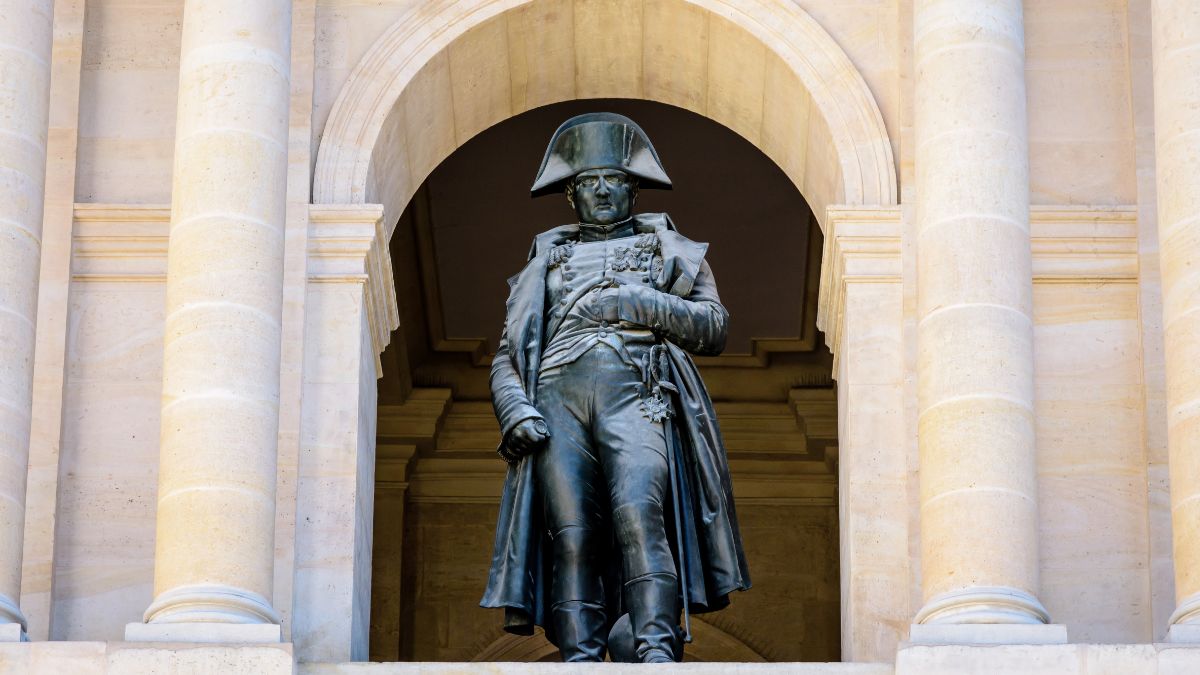Kalidasa (Classical Sanskrit Literature)
Kalidasa (Classical Sanskrit Literature)
Napoleon Bonaparte – French Empire

Napoleon Bonaparte – French Empire
Napoleon Bonaparte – a name that echoes through the annals of history, resounding with the thunder of battles won and an empire forged. Born on the rugged island of Corsica in 1769, this diminutive figure rose meteorically to command a nation and shake the world. His story, a mélange of brilliance, ambition, and sheer force of will, unfolds like a grand tapestry of human endeavor.
From his humble beginnings, Napoleon’s prodigious talent in military strategy quickly became evident. He was a master chess player on the battleground, turning armies into his pawns, and Europe’s map into his board. His early victories in Italy, where he outmaneuvered and outwitted his enemies, were not just battles won but symphonies of warfare composed by a maestro of combat. His soldiers, baptized in the fire of his passion, followed him not just out of duty but out of devotion.
Napoleon’s ascent to power was as rapid as it was dramatic. In 1799, he orchestrated a coup that catapulted him to the forefront of French politics. As First Consul, and later as Emperor, he embarked on a quest for glory and dominance. The French Empire under his reign was a behemoth of cultural and military prowess. He instituted reforms – the Napoleonic Code, a beacon of legal modernization; educational transformations; and administrative overhauls that left an indelible mark on France and beyond.
The Battle of Austerlitz, known as the Battle of the Three Emperors, was Napoleon’s magnum opus. On a frosty December morning in 1805, his strategic ingenuity was on full display. It was here that he solidified his reputation as one of the greatest military commanders in history. The French eagles soared high as the Austrian and Russian forces crumbled under his ingenious tactics. Austerlitz was not just a victory; it was a masterpiece painted with the brushstrokes of genius.
Yet, even the brightest stars are fated to fall. Napoleon’s ambition, stretching across the continents, eventually overreached. His invasion of Russia in 1812 was a catastrophic miscalculation. The brutal Russian winter and fierce resistance whittled down his Grand Army, a once invincible force reduced to a shadow of its former glory. This marked the beginning of the end.
In 1814, after a series of defeats, Napoleon was exiled to the island of Elba. But his indomitable spirit was not so easily caged. In a remarkable comeback, he returned to France, rallying his supporters for a last stand in what would be known as the Hundred Days. It culminated in the Battle of Waterloo, where his star finally set, leading to his final exile to the remote island of Saint Helena.
Napoleon’s legacy is a complex tapestry, woven with threads of military genius, administrative prowess, and a thirst for power. His reforms laid the groundwork for modern Europe, yet his wars brought devastation. He was a hero to some, a tyrant to others. But above all, Napoleon Bonaparte was a figure larger than life, a legend whose story is an awe-inspiring testament to the heights and depths of human ambition. In the pages of history, his name burns brightly, a meteor that once blazed across the sky of a world forever changed by his presence.